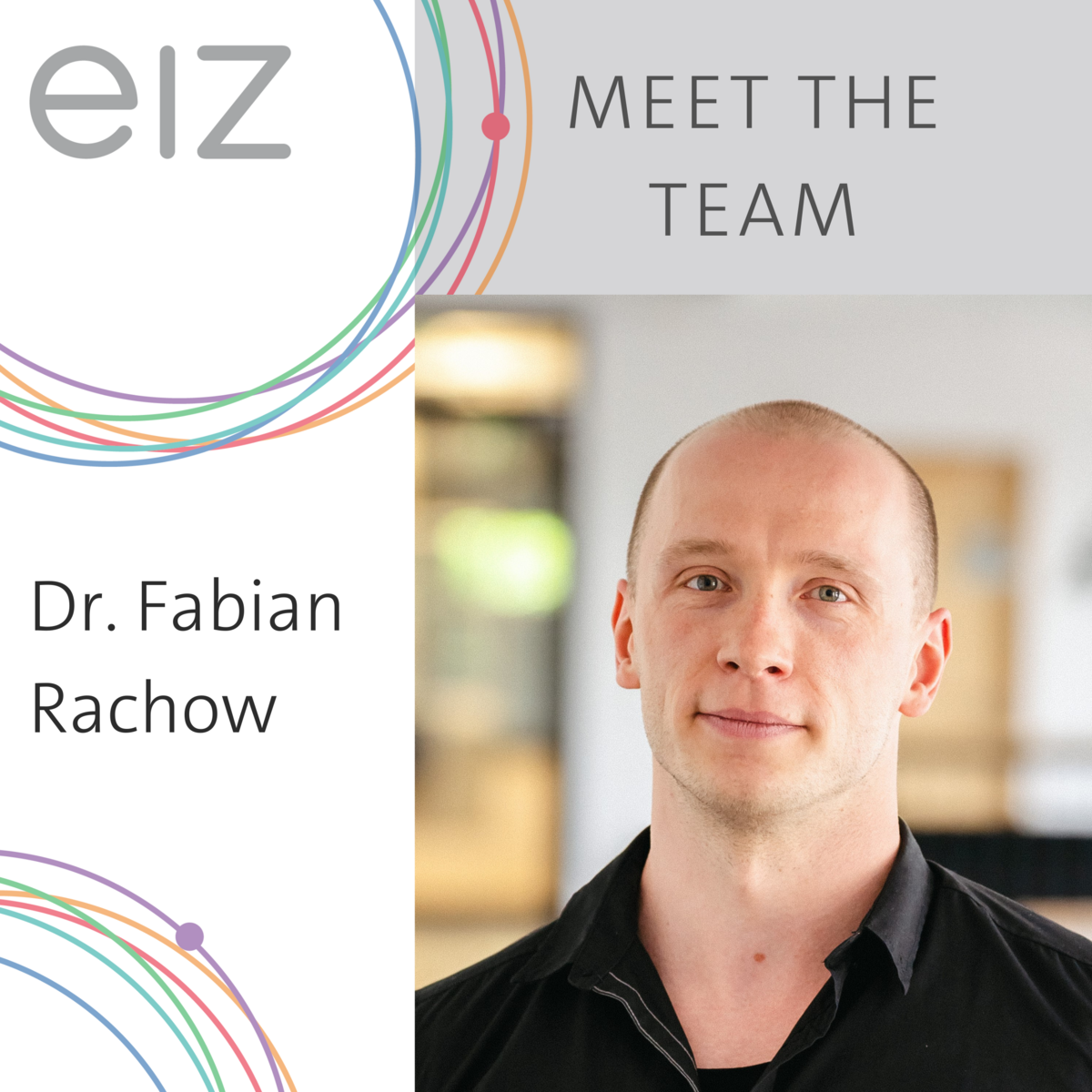Meet the team
In our "Meet the Team" series, we introduce the EIZ staff members. In this way, we want to bring you closer to the great people who are passionately working here to create the sustainable, networked and digitalized energy system of the future.
Dr. Fabian Rachow studied physics at BTU Cottbus-Senftenberg, where he completed his doctorate in 2017 with a thesis on ‘Process optimisation for the methanation of CO2.’ In subsequent scientific projects, he dedicated himself to the hydrogenation of CO2 to methane and methanol, the steam reforming of methane to hydrogen and the investigation of the functionality of three-way catalysts. Since October 2022, he is part of the Energy Innovation Center (EIZ) in the Applied Physics and Semiconductor Spectroscopy department, headed by Professor Jan Ingo Flege. He heads the Young Investigator Group (YIG) ‘Catalyst Technologies for PtX-Systems’ in the Energy Storage and Conversion Lab (ESC) of the EIZ.
1. What topics are the scientists in your group working on?
In our group, we are working on the development of novel catalysts that convert carbon dioxide and hydrogen into methane and methanol. We are concentrating both on the production of these catalysts and on analysing them in detail. This means that we are investigating the conditions under which the catalysts work most efficiently and which chemical reactions take place on their surface. In order to better understand these processes, we use special spectroscopic methods that provide us with information about the oxidation state of the catalyst or the intermediate products that are formed, for example. With this knowledge, we can develop models that predict the behaviour of the catalysts depending on their composition and structure.
2. How does this research contribute to advancing the energy transition?
Our research makes an important contribution to the further development of energy storage systems, which are essential for the successful implementation of the energy transition. Our focus is on chemical storage systems such as hydrogen, which is produced by electrolysis of water. This hydrogen can be converted into methane or methanol using CO2 in order to reduce carbon dioxide emissions. These energy sources can be integrated into a closed cycle and used to generate electricity when required. In addition, other laboratories at the Energy Innovation Center (EIZ) are working on evaluating the integration of these technologies into the existing energy system and maximising their potential for a sustainable energy supply.
3. Lusatia is undergoing change. What is your personal vision for Lusatia in 2050, what do you wish for the future development of this region?
This is certainly not just my vision, but I would like Lusatia to be perceived as an innovation centre for new technologies in 2050. That current projects are successfully realised and Cottbus, for example, is seen as a model city for a self-sufficient energy supply. Such developments can make Lusatia an attractive location for international companies and skilled labour. Ultimately, I hope that progress in technology and sustainability will turn Lusatia into a future-oriented region worth living in.
4. What makes working at BTU special for you?
Working at BTU is special for me because I appreciate the close, personal atmosphere that I already experienced during my studies. The smaller university allows direct contact with professors and fellow students/colleagues. I now work in a very friendly team and enjoy the good co-operation between the chairs. The EIZ also offers excellent conditions for our research, especially with the new equipment that we can use in the project.
5. What are your personal highlights in Cottbus? What should you definitely try out when you're here?
Although some people claim that the city is rather quiet in the evenings, there are definitely exciting things to discover. Cottbus has numerous parks for nature lovers and well-developed cycle paths for cyclists. I would particularly like to emphasise the Klunker climbing hall, which I can highly recommend to all climbing enthusiasts. The city has its charm and offers a surprising number of leisure activities for a city of such a manageable size.
Thank you, Fabian, for the interview and all the best for your research work!
Contact us
Angewandte Physik und Halbleiterspektroskopie
T +49 (0) 355 69-2996
Fabian.Rachow(at)b-tu.de

